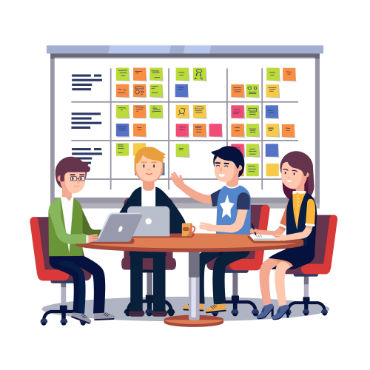Digital fellowship program is back and growing for 2018
Building off last year's successful debut, the student-initiated Civic Digital Fellowship is back at more agencies, with more fellowship slots.

Building off last year's successful debut, the student-initiated Civic Digital Fellowship is back for 2018 — at more agencies, with more fellowship slots.
The fellowship — launched last April by Harvard students Neel Mehta, Athena Kan and Chris Kuang — hosted 11 undergraduates and three graduates from across the country at the Census Bureau for 10 weeks over the summer. The goal was to give qualified fellows the chance to work on technically intensive projects alongside federal employees, while also helping to solve government's woes in attracting young tech talent.
Fellows received a stipend as well as housing, travel and other expenses from the program and participating agencies.
This year, the Departments of State and Health and Human Services will be joining the Census Bureau as participants in the fellowship. The Department of Veterans Affairs is also a possibility, but the clock is ticking.
Natalie Moore, who works with the U.S. Digital Service and an advisory board member of the students' Coding It Forward initiative, wrote on Twitter that the VA could also participate "if we can hurry up and make this happen."
In total, Kuang estimated the fellowship will accept between 30 and 50 students to work in software engineering, data science, design, product management and, starting this year, even a data journalism role.
"We want to expand the definition of what it means to be a technologist," he said, adding that the cost structure this summer will remain similar.
The major difference between last year and this year's program, Kuang said, is that after proving its worth last year, this year's application period opened earlier, which has given the group time to better structure the program, learn from its inaugural year and "to be more competitive with tech recruiting" from the private sector.
The fellowship "happened organically last year," said Kuang, pointing out the application period didn't open until mid-April, after many would-be candidates had already lined up what they were doing for the summer.
"Having a year under our belt is going to allow us to formalize a lot of things and allow us to have a structure and vision for how we want things to play out," he said.
As a result, Kuang noted, the students have been able to garner feedback from last year's fellows and been able to work more closely with college career offices. Plus, the fellowship has been able to take root at more agencies, and has already surpassed the number of applicants it received last year.
As the program grows in size and scope, Kuang stressed the importance of retaining its cohort feel, and for the program to be able to quickly adapt to maximize the impact fellows can make in their 10 weeks.
"The fellowship is a year-to-year experience," he said. The founders' goal is to be able "to look at it on a day by-day, week-by-week basis and continue to make sure the work remains technically challenging and impactful, regardless of agency," Kuang said.





